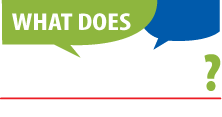Phrases starting with the letter: A B C D E F G H I J K L M N O P Q R S T U V W X Y Z
Definition of: gender
(jen′dər) noun
1. Gram. In many languages, as in the Indo-European and Semitic families, a grammatical category of nouns governing the form assumed by the words which modify or refer to them. Natural gender corresponds to sex or lack of sex; animate beings are either masculine or feminine, inanimate objects are neuter. This is true of English, which indicates natural gender by pronoun reference (he, she, it, etc.), by suffixes and prefixes (aviator, aviatrix, emperor, empress, he-bear, she-bear, etc.), or by completely different forms (cow, bull, etc.). Grammatical gender may have a partial correspondence to sex for animate beings, but sexless objects can be of any gender. Latin and German have three grammatical genders (masculine, feminine, and neuter) often without reference to sex, as seen in Latin nauta sailor, which is in a feminine declension. French and Hebrew have two genders, the names of inanimate objects being either masculine or feminine. In some languages, as in the Algonquian family, gender classification is made on another basis entirely
—that of animate and inanimate categories.
2. Colloq. Sex.
3. Obs. A kind; genus.
—v.t. & v.i. Obs. To engender. [<OF gendre <L genus, -eris. Doublet of GENUS, GENRE.]

Comment about this word, ask questions, or add new information about this topic: